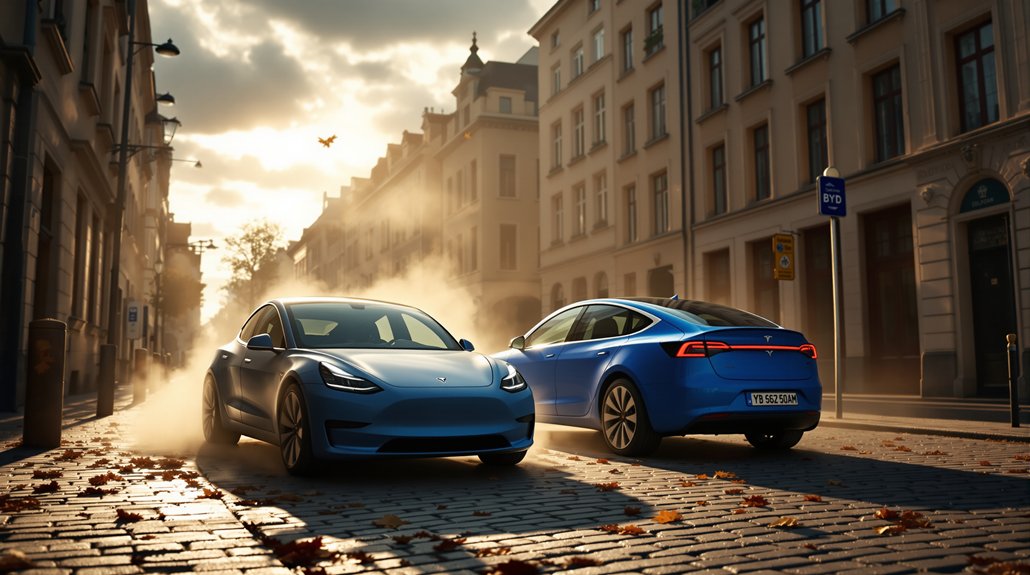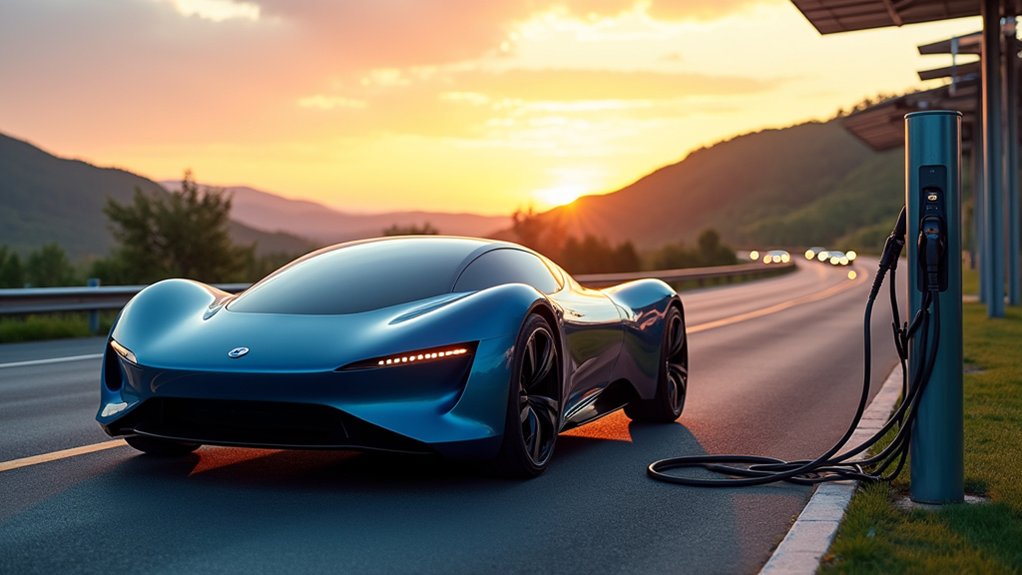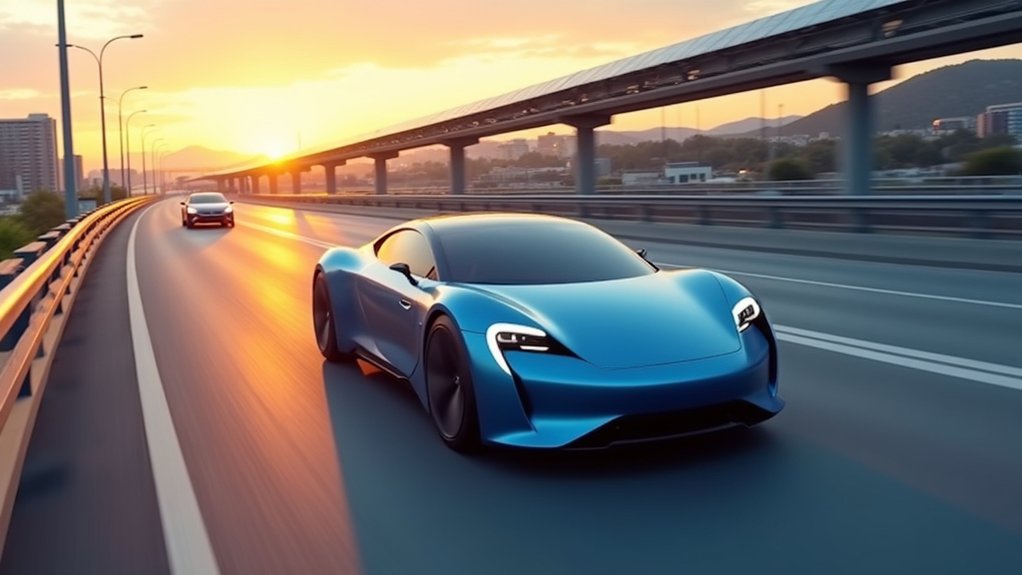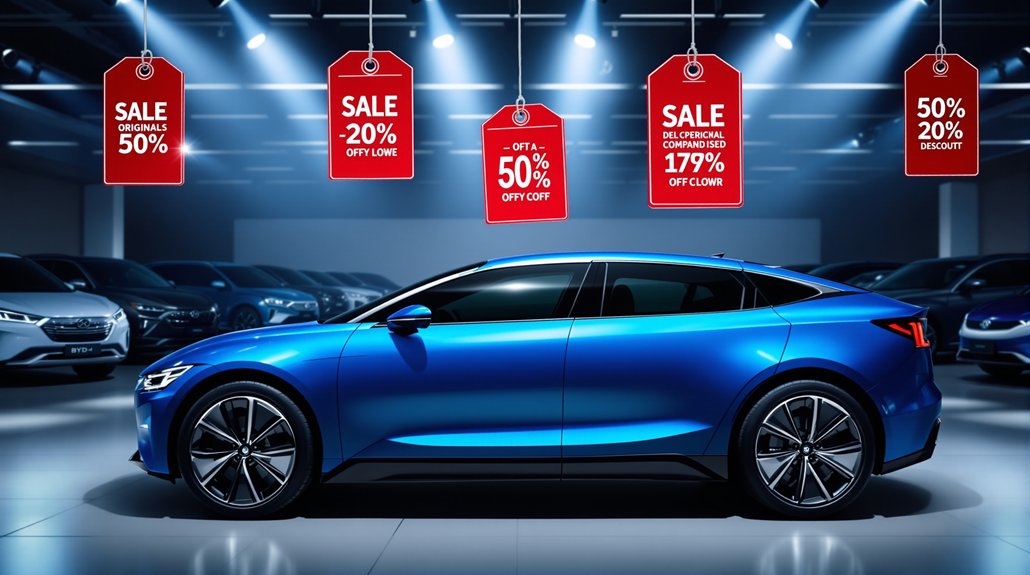While Tesla once dominated Europe’s electric vehicle landscape, the American automaker’s market position has collapsed dramatically, with its EU market share plummeting to a mere 0.7% in July 2025. This figure represents a stark contrast to Chinese competitor BYD‘s 1.1% share in the same month. The downward trajectory has been consistent, with Tesla’s January-July share halving to 1.2% from 2.1% year-over-year, marking the seventh consecutive month of declining sales.
The numbers paint a troubling picture for the EV pioneer. Tesla’s European registrations fell 43.5% in the first seven months of 2025, with July showing a 40% drop to just 8,837 vehicles. BYD’s simultaneous 225% sales surge demonstrates a clear shift in consumer preference. BYD’s achievement of 13,503 units sold in July highlights their exponential growth in the European market. I’ve tracked BEV market movements for years, and this crossover point represents a pivotal moment in the industry’s competitive landscape.
Tesla’s European collapse signals a fundamental shift in the EV landscape as BYD surges ahead with aggressive growth.
BYD’s success stems from its aggressive pricing strategy, undercutting Tesla by up to 30% while offering affordable models like the Dolphin Surf. Their hybrid options also resonate with customers hesitant about full electrification. Global statistics show BYD’s commanding lead with 399,442 units sold in September 2024 alone. Meanwhile, Tesla struggles with a dated lineup and delayed refreshes of its Model 3 and Y platforms. The absence of major vehicle refreshes has significantly hindered Tesla’s ability to maintain market relevance against newer competitors.
Elon Musk’s political activities appear to have exacerbated Tesla’s European challenges. The sales decline correlates with his entry into US politics, creating brand perception issues in the EU market. Regulatory scrutiny has intensified, and European sentiment has shifted toward domestic or non-US brands.
Tesla plans to introduce a lower-cost model by late 2025, but the company’s dominance seems irreparably damaged. BYD’s battery technology and diversified lineup position it for continued growth, particularly in price-sensitive Eastern and Southern European markets.
The paradigm shift is clear: Tesla’s brand-centric approach has given way to BYD’s focus on cost, technology, and adaptability. Europe’s EV landscape has been permanently altered, with Chinese manufacturers now setting the pace.









